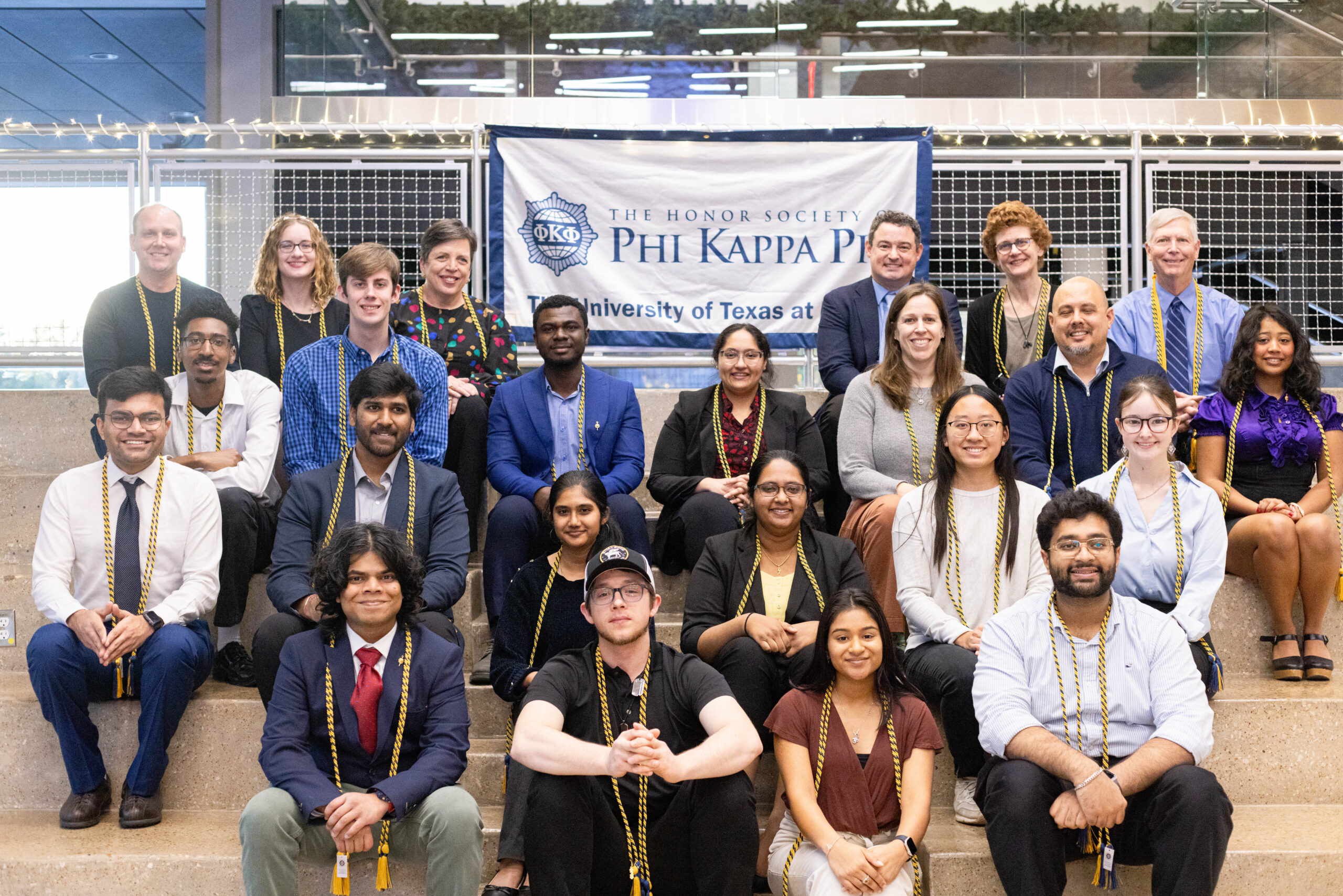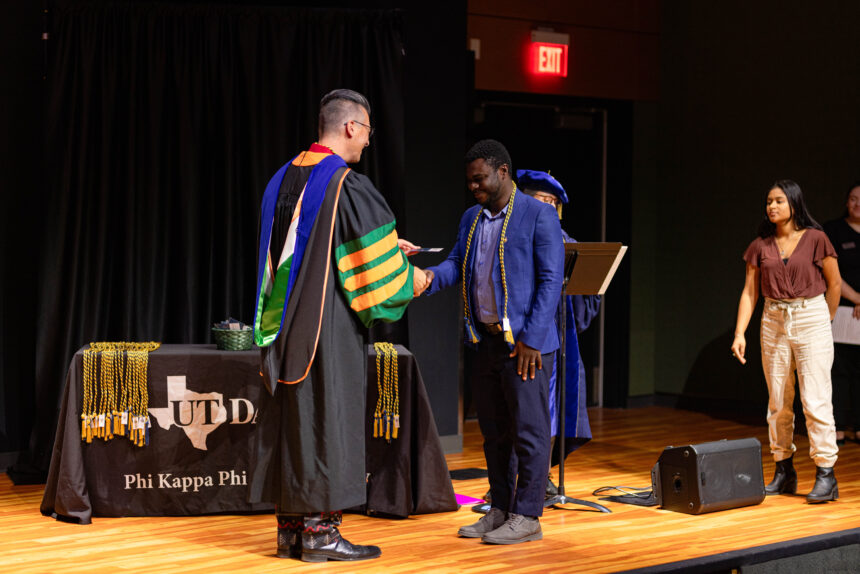John-Paul Adjadeh, a Ghanaian doctoral candidate at The University of Texas at Dallas, is gaining attention for his research on the role of traditional authorities in customary land management, a topic with profound implications for governance and resource equity in developing nations. His work, which examines accountability frameworks within Indigenous leadership structures, builds on his prior experience in Ghana’s public sector and has earned him recognition in his academic program.
Adjadeh was recently selected as a Brian J.L. Berry Scholar, a competitive distinction awarded to graduate students demonstrating exceptional academic promise in the School of Economic, Political, and Policy Sciences. The honor, named after a pioneering scholar in urban studies, highlights Adjadeh’s analytical approach to blending cultural governance practices with modern policy challenges.
He also received the Government and Political Science Fellowship, supporting his fieldwork on Ghana’s customary land systems. “Land management is deeply tied to cultural identity and economic stability in many communities,” Adjadeh explained. “My research seeks to identify how traditional leaders can balance preservation with transparency in rapidly evolving legal landscapes.”

Before pursuing his doctorate, Adjadeh was a Principal Registrar at Ghana’s Ministry of Chieftaincy and Religious Affairs, where he mediated disputes involving traditional leaders and modern governance frameworks. This role exposed him to the complexities of integrating centuries-old customs with contemporary administrative demands—a theme central to his current research.
“Accountability isn’t just about legal compliance; it’s about fostering trust between communities and their leaders,” he noted. His doctoral work analyzes case studies where traditional authorities have successfully navigated land conflicts, offering insights for policymakers aiming to harmonize customary practices with national laws.
Adjadeh’s research arrives at a pivotal time as Ghana and other nations grapple with land rights controversies amid urbanization and foreign investment. His findings could offer a blueprint for balancing cultural preservation with economic progress.
“The strength of customary systems lies in their community roots,” he said. “But without clear accountability mechanisms, even well-intentioned leaders can face challenges. My work seeks to address that gap.”


